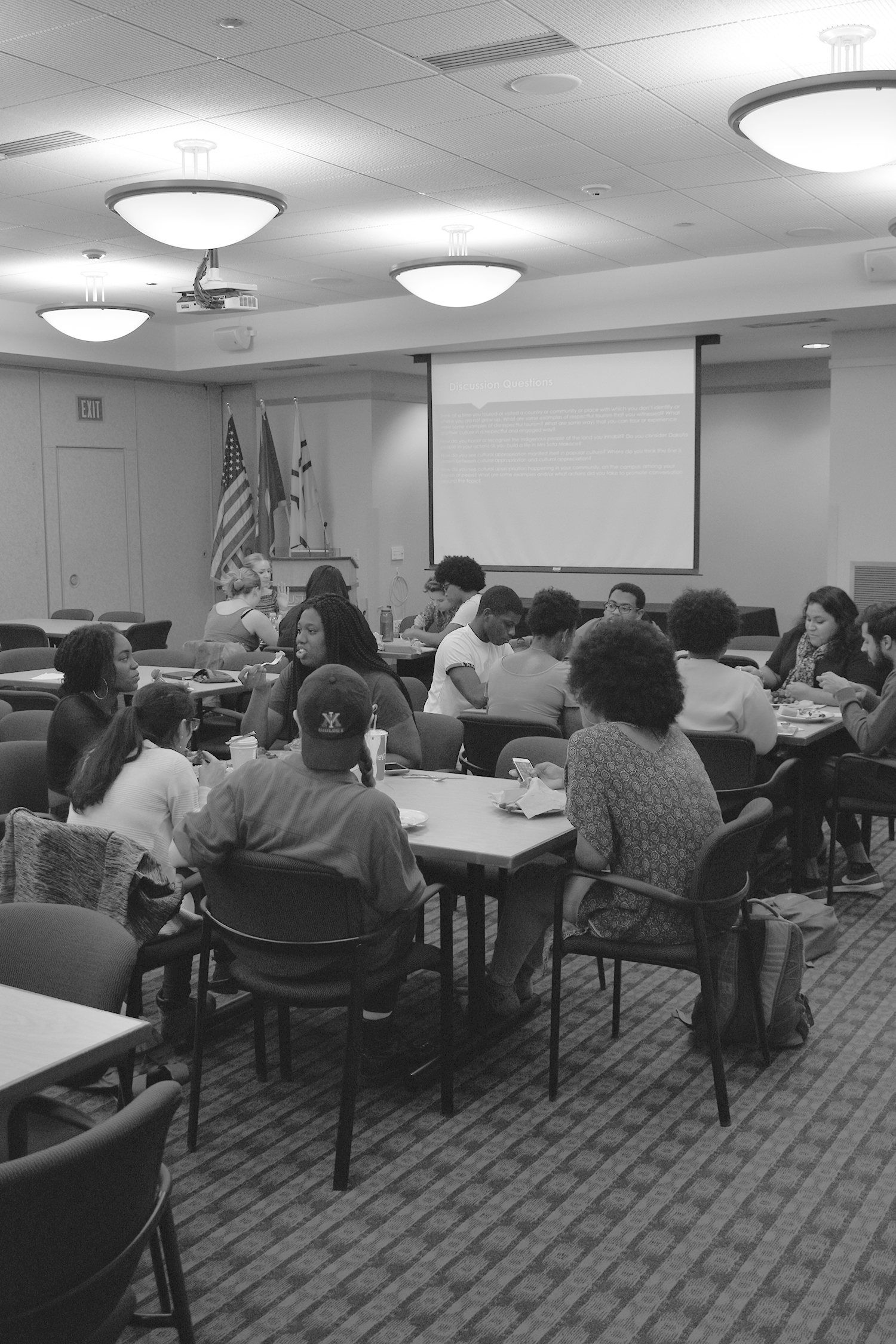As Gustavus students prepare to study abroad, Dr. Gabriela Spears-Rico gives an informative, eye-opening presentation, “The Problems and Ethics of Touring Indigenous Communities: A P’urhepecha Case Study.”
Spears-Rico is a graduate of Stanford University who came to the Gustavus campus on Monday to share her research and knowledge on topics such as touring indigenous populations, cultural appropriation, and inappropriate tourist transactions from her studies done in Mexico, specifically focusing on the P’urhépecha, a group of indigenous people found in northern Mexico.
“This event is an annual event that Diversity Leadership Council organizes for the Gustavus Community,” Sophomore Faith Emovon David, Public Relations Chair of DLC said. “We bring in a speaker to talk about an interesting issue that we feel will educate and inform whoever the audience may be.”
“Paradigm is an event that allows students the opportunity to explore concepts of privilege, oppression and social justice. This event can act as a catalyst for change, as students learn to fight the injustices occurring in the world around them,” Junior Claire Dernberger, member of the Paradigm committee, said.
She received her Ph.D. in Comparative Ethnic Studies from the University of California at Berkeley and currently works as an Assistant Professor of American Indian Studies and Chicano/a and Latino/a Studies at the University of Minnesota.
Her research is focuses on examining the relationship between indigenous people and tourists in Mexico.
In her presentation, she poses that tourist visits to Michoacán are motivated by their desire to encounter romanticized notions of indigenous primitivity in its ‘purest’ form.
“It is more than ever apparent that none of us are safe,” Spears-Rico said. “As a dark-skinned Mexicana, I know as I navigate the Twin Cities and our adjoining suburbs that my privileges of having “papers,” middle-class status, and a Ph.D. do not exempt me from the impact of xenophobia and white supremacy.”
She also touched on how appropriation and commodification impact indigenous communities internationally and how non-indigenous people can engage with indigenous communities in a respectful manner that avoids a further propagation of colonialism.
“I think that this is a very relevant topic that many students can take something from [because] a large portion of Gustavus students study abroad or travel,” Dirnberger said. “I think there are many ways in which travelers disrespect native cultures. Whether it is through clothing, social media posts, or commercialization.”
Spears-Rico is currently working on her first book, Mestizx Melancholia and the Legacy of Rape and Conquest in Mexico.
This work engages performance theory, critical race theory and feminist theory to examine how ‘going native’ functions in Mexico and how the dynamics of cultural appropriation inform the production of mestizaje and indigeneity among Mexicans and Chicanos.
Her primary investment is in unraveling how the trauma of rape from the Spanish Conquest informs the mestiza/o desire to tour and inhabit indigenous communities.
Spears-Rico is also a working artist and poet. Her poetry reflects the working class and her experience growing up in migrant labor camps along the American West Coast.
Her poetry has been published in numerous anthologies including Sing: Poetry from the Indigenous Americas (University of Arizona Press, 2011) and Love Rise Up: Poems of Social Justice, Protest and Hope (Benu Press, 2012).
In the Twin Cities, her work has been exhibited at Intermedia Arts, the Ordway Theater, and the Minneapolis Institute of the Arts.
According to her narrative from the University of Minnesota, she was awarded the U.C. MEXUS Fieldwork Grant, the Arnold Mitchem Fellowship by Marquette University, and a Visiting Scholar appointment with the Center for Anthropological Studies at El Colegio de Michoacan.
Dr. Spears-Rico was also awarded the Dean’s Award for Service and the Renato I. Rosaldo Jr. Award, both from Stanford University where she received her BA.
Spears-Rico’s scholarly work has been published in the American Indian Culture and Research Journal, the Harvard Journal of Hispanic Policy, and in Latinx Talk.
“I hope this conversation helps Gustavus students learn to be empathetic travelers while avoiding cultural appropriation,” Dirnberger said.
“I hope the community [left] with more knowledge on this topic and a different perspective,” David said.
The presentation was followed by a discussion and delicious dinner led by DLC.
